Medical Education in RussiaLast year a delegation from the World Health Organization
Медицинское образование в России.
В прошлом году делегация из Всемирной организации здравоохранения посетила Москву. Делегаты интересовались медицинским образованием в России. Некоторые из них посетили Московскую медицинскую академию и поговорили на эту тему с доктором Ивановым, деканом медицинского факультета.
Доктор Конрой: Доктор Иванов, мои коллеги и я здесь по договоренности с Всемирной организацией здравоохранения. Мы хотели бы получить некоторую информацию о подготовке врачей в вашей стране и об учебных программах в медицинских высших учебных заведениях или медицинских школах, как мы их называем.
Декан: Я буду рад ответить на все ваши вопросы.
Док-р Конрад: Прежде всего, не могли бы Вы рассказать нам, кто имеет право поступить в медицинскую школу в вашей стране?
Декан: любой гражданин нашей страны, который имеет полное среднее образование может подать заявление в медицинскую школу.
Д-р. Конрад: Кандидаты должны сдавать экзамены, не так ли?
Декан: Да, совершенно верно. Все претенденты должны сдавать вступительные экзамены по биологии, химии и русскому языку. И те, кто получил самые высокие оценки на экзаменах принимаются. Абитуриенты, которые закончили школу с золотой или серебряной медалью получают возможность сдавать только один экзамен. Если они получают отличную оценку, они допущены к обучению в медицинской школе.
Доктор Браун: Расскажите нам, пожалуйста, как ваши студенты обучаются?
Декан: Обучение в высших школах дается в форме лекций, группового обучения и практических занятий.
Доктор Скотт: Является ли посещение лекций и занятий добровольным? Декан: Нет, оно является обязательным для всех студентов.
Доктор Конрой: Как проверяется усвоение материала у студентов?
Декан: Наш учебный год начинается 1 сентября и делится на два семестра по четыре месяца каждый. В конце каждого семестра студенты должны пройти ряд экзаменов.
Д-р. Браун: Мы хотели бы знать кое-что о вашей медицинской программе, если это возможно.
Декан: Ну, курс обучения длится шесть лет и охватывает основные доклинические и клинические дисциплины. На первых курсах, при изучении дрклинических предметов, учебная программа едина для студентов медицинской, профилактической медицины, стоматологического и педиатрических факультетов. В течение первых двух лет студенты изучают физику, общую, органическую, неорганическую и биологическую химию. Таким образом, студенты изучают анатомию человека, физиологию, гистологию, микробиологию, латинский, иностранный язык и философию. Начиная с третьего курса вводятся специальные клинические предметы — все отрасли внутренней медицины, хирургии, гинекологии, акушерства, офтальмологии, инфекционных заболеваний и других. В конце третьего года студенты проходят шесть недель практики. Они выполняют обязанности медсестер. После того, на четвёртом курсе студенты проходят еще одну практику, в течение которой они знакомятся с прямым контактом между врачом и пациентом в отделении внутренних болезней, а также в хирургическом отделении, а отделение акушерства и гинекологии.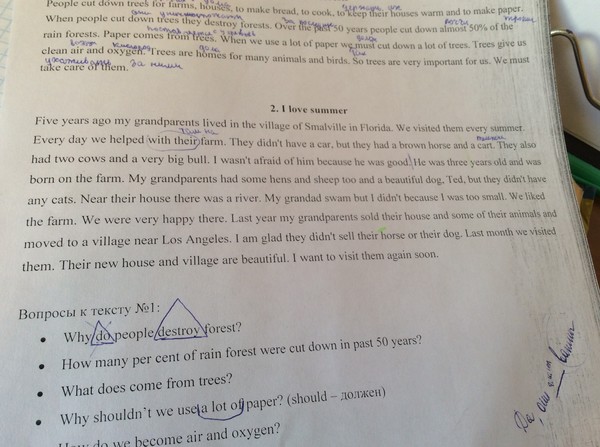 Работая в качестве фельдшеров, студенты осваивают определенное количество медицинских и диагностических процедур. Студенты старших курсов практикуются в поликлиниках. Они должны посещать лекции, семинары, а также клинические конференции.
Работая в качестве фельдшеров, студенты осваивают определенное количество медицинских и диагностических процедур. Студенты старших курсов практикуются в поликлиниках. Они должны посещать лекции, семинары, а также клинические конференции.
Д-р. Конрой: Д-р. Иванов, Вы рассказали нам о студенческой клинической подготовке специалистов в области медицинского факультета. А как завершается учебный курс в медицинской школе? А как насчет специализации?
Декан: Видите ли, в нашей стране выпускник студент-медик сдаёт окончательный государственный экзамен, который включает теоретические вопросы о внутренних болезнях, хирургии и акушерстве и гинекологии, а также о клинических случаях. Таким образом, выпускники должны продемонстрировать свои практические навыки. Те, кто сдал экзамен получают Диплом, который удостоверяет их в качестве врачей. Получив диплом, они могут поступить либо на одно-летний курс интернатуры и получить квалификацию специалистов общей лечебной практики, или пойти учиться два года и получить квалификацию в узкой специализации.
Д-р. Браун: Д-р. Иванов, не могли бы Вы сообщить нам, какие возможности имеют Ваши врачи для специализации?
Декан: Интерны работают под непосредственным наблюдением опытных специалистов в клиниках и больницах, в основном. Также выпускники могут подать заявление на послевузовское обучение. В течение трех лет аспирантам предстоит делать исследование в одной из важнейших проблем современной медицины, подготовить диссертацию, защитить ее, и подать на соискание ученой степени кандидата медицинских наук.
Д-р. Конрой: Д-р. Иванов, спасибо большое за беседу.
Декан: Всегда пожалуйста. Если вы хотите, я с удовольствием проведу вам по некоторым нашим клиническим больницам и отделениям.
Д-р Браун: Мы были бы очень признательны Вам.
The plenary session “Russia-Africa in a Multipolar World” was held in Moscow
The plenary
session “Russia-Africa in a Multipolar World” was held at the State Duma as part of the events of the Second International Parliamentary Conference
“Russia-Africa”.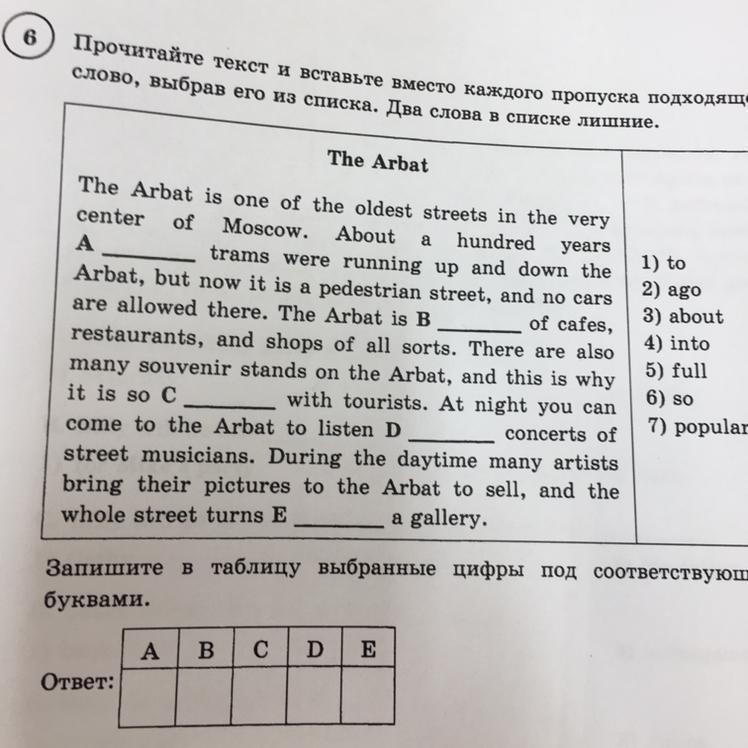
See also
Address by President of the Russian Federation Vladimir Putin at the plenary session “Russia-Africa in a Multipolar World”
The President of the Russian Federation Vladimir Putin addressed the Conference participants at the plenary session. The President of the Russian Federation stressed that Russia had always given and would continue to give priority to cooperation with African countries.
“I would like to emphasize that our country has always given and will continue to give priority to cooperation with African states. It would not be an exaggeration to say that this is one of the invariable priorities of Russian foreign policy,” Vladimir Putin said.
“Representatives
of almost all states of the continent are participating in the Conference. Taking into account the fact that there are legislators who are meant to express the will of their voters in their countries, to work in the interests
of their fellow citizens, your visit is evidence of the interest of the nations
of Africa in active development of comprehensive mutually beneficial relations
with Russia,” stressed the President of the Russian Federation.
Taking into account the fact that there are legislators who are meant to express the will of their voters in their countries, to work in the interests
of their fellow citizens, your visit is evidence of the interest of the nations
of Africa in active development of comprehensive mutually beneficial relations
with Russia,” stressed the President of the Russian Federation.
Russia and African countries stood against neocolonial ideology imposed by foreign states, as he added.
“We are convinced that Africa will become one of the leaders of the emerging new multipolar world order, as there are all objective prerequisites for that,” said the head of state.
“Today, the African continent plays an important role in solving global and regional problems. And it will only increase,” said the Chairman of the State Duma Vyacheslav Volodin Volodin
Vyacheslav Victorovich The Chairman of the State Duma of the Federal Assembly of the Russian Federation of the eighth convocation.
 Elected in single mandate constituency № 163 (Saratov constituency — Saratov Oblast)
and added that Russia and African countries “are equal allies and partners”.
Elected in single mandate constituency № 163 (Saratov constituency — Saratov Oblast)
and added that Russia and African countries “are equal allies and partners”.“Our relations have always been built on a disinterested basis, on the principles of mutual respect and non-interference in internal affairs. For our country, the African continent has never been the subject of mercantile interest, the use of labor and raw materials, and we cannot say the same about the United States of America and European states,” stressed the Chairman of the State Duma.
According to him, Washington and Brussels are seeking to take control of Russian and African natural resources. “In fact, they are still pursuing the colonial policy. They take any measures, including forceful and terrorist, for their own benefit,” said the Chairman of the State Duma.
See also
Vyacheslav Volodin: Washington should not lecture us how to build relations and make plans for the future
“Washington should
not lecture us how to build relations, make friends and make plans for the future,” stressed Vyacheslav Volodin.
The Chairman of the State Duma also proposed to hold the Parliamentary Conference “Russia-Africa” annually. “Parliaments should use their opportunities to bring relations between our countries to a higher level,” he said.
Compensation for damage caused during the colonial period
Russia had always supported African countries in their national liberation struggle “against colonialism and illegal occupation,” as said the Speaker of the Federation Council Valentina Matvienko. “The role of African states in the global economy and in the international arena is growing, but Western countries do not want to “change their neocolonialism mentality,” she added. In particular, the problem of paying compensation for damage caused during the colonial period has not yet been resolved.
“I think that it is necessary to raise loudly the issue of compensating damage, I mean financial payments to all the people in Africa who suffered during the colonial period from European oppressors, from the consequences of colonialism,” stressed Valentina Matvienko.
According to her, the current time incudes global, tectonic shifts in the world system. “The world is throwing off the remnants of the shackles of colonial dependence and moving towards real multipolarity, a more just world order. And it is hard, impossible to imagine new world without Africa,” said Valentina Matvienko.
1 из 62
Chairman of the State Duma Vyacheslav Volodin
Chairman of the State Duma Vyacheslav Volodin, Deputy Chairman of the State Duma Alexander Babakov, Speaker of the National Assembly of the Parliament of the Republic of South Africa Nosiviwe Mapisa-Nqakula and Speaker of the National Assembly of the Republic of Zimbabwe Jacob Mudenda
Speaker of the Federation Council Valentina Matvienko
Deputy Chairman of the State Duma Alexander Babakov
Chairman of the State Duma Vyacheslav Volodin
First Deputy Chairman of the Committee on International Affairs Alexey Chepa and First Deputy Chairman of the Committee on Informational Policy, Technologies and Communications Alexander Yushchenko
Chairman of the State Duma Vyacheslav Volodin
Speaker of the Federation Council Valentina Matvienko
Chairman of the State Duma Vyacheslav Volodin and Speaker of the National Assembly of the Parliament of the Republic of South Africa Nosiviwe Mapisa-Nqakula
First Deputy Chairman of the Committee on Development of Far East and Arctic Sergey Karginov
Chairman of the Committee on Control Oleg Morozov and First Deputy Chairman of the Committee Mikhail Romanov
First Deputy Chairman of the State Duma Ivan Melnikov
Deputy Chairman of the State Duma Alexey Gordeyev
Deputy Chairman of the State Duma Boris Chernyshov
Chairman of the State Duma Vyacheslav Volodin and leader of the LDPR faction Leonid Slutsky
Minister of Natural Resources and Environment of the Russian Federation Alexander Kozlov
Chairman of the Committee on Ecology, Natural Resources and Environment Protection Dmitry Kobylkin (right)
First Deputy Chairman of the State Duma Ivan Melnikov
Member of the Committee on Ownership, Land and Property Relations Alexander Iltyakov
Chairman of the Committee on Financial Market Anatoly Aksakov
Chairman of the State Council of the Republic of Crimea Vladimir Konstantinov
Member of the Committee on Economic Policy Sergey Altukhov
Chairman of the Commission of the Federal Assembly on Rules and Maintenance of Activity of the State Duma Victor Pinsky
Deputy Chairman of the State Duma Vladislav Davankov
Speaker of the National Assembly of the Democratic Republic of São Tomé and Príncipe Celmira de Almeida do Sacramento dos Santos Lourenço
Speaker of the National Assembly of the Parliament of the Republic of South Africa Nosiviwe Mapisa-Nqakula
Points of view of African parliamentarians
The President of the National Assembly of the Republic of Benin Louis Gbèhounou Vlavonou noted
the importance of holding such events like the International Parliamentary
Conference: “It demonstrates the will of our countries and the Russian
Federation to achieve new horizons and develop cooperation between your vast
country and the vast African continent.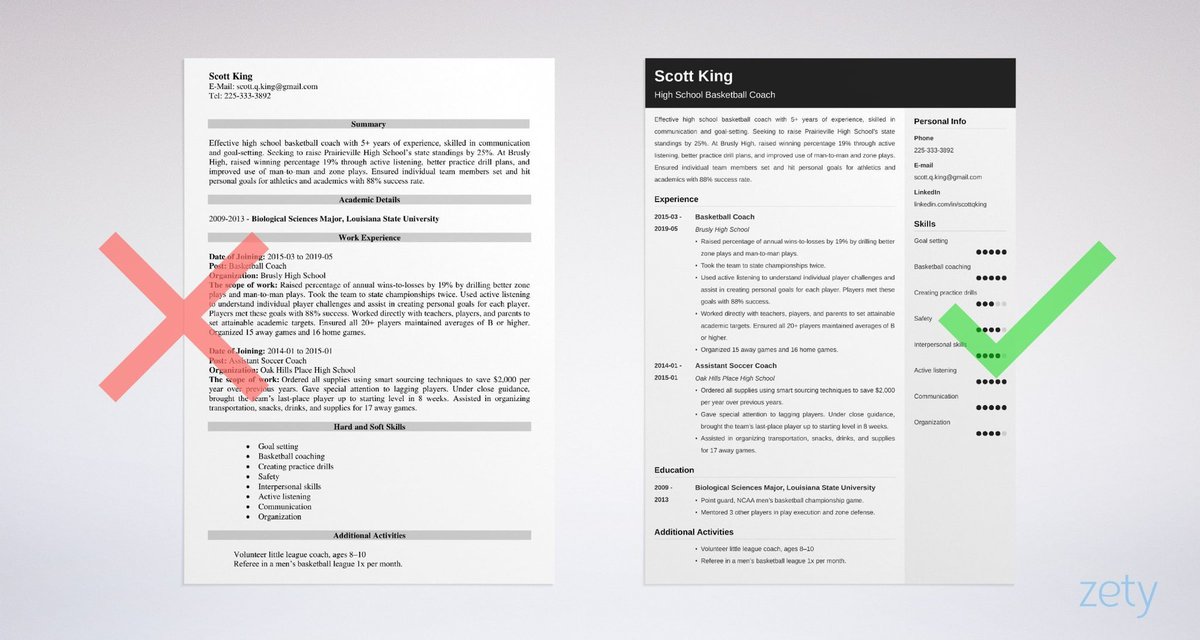 ”
”
“Our common task is to stop any armed conflict and establish peace,” said Louis Gbèhounou Vlavonou. “We believe that cooperation between African countries and the Russian Federation is the most important factor in global cooperation,” he added.
The President of the Transitional Legislative Assembly of Burkina Faso Ousmane Bougouma emphasized that his country had to face such a problem as terrorism, like Russia had also faced that problem.
“We understand that security is an indivisible common good. That is why we have decided to start cooperation with Russia, while maintaining our sovereignty. This is a key partnership for security in our country,” said Ousmane Bougouma. According to him, this is important because the people of Burkina Faso want to live in peace.
The President of the National Council of the Transition of the Republic of Guinea Dansa Kourouma
stressed that the Conference was aimed at solving many important issues for African countries. “We understand that all these problems affect the situation
on the African continent, and to overcome these challenges, we need
cooperation, new technologies, help of our great partners, such as the Russian
Federation,” he added.
“We understand that all these problems affect the situation
on the African continent, and to overcome these challenges, we need
cooperation, new technologies, help of our great partners, such as the Russian
Federation,” he added.
The parliamentarian is convinced that African countries should take their special place in the multipolar world. “The people of African countries have a role to play,” he concluded.
“Russia is a powerful country, Russians are great people. Russia has a great President and statesman,” said the President of the National People’s Assembly of the Republic of Guinea-Bissau Cipriano Cassamá. “We are always on his side, we stand with him, because we see that President Vladimir Putin, the Russian people, in any conditions continue providing support to other countries. And we will be together with Russia,” the parliamentarian stressed.
The Speaker of the National Assembly of the Parliament of Zimbabwe Jacob Mudenda is convinced
that the Conference has confirmed the role of parliaments and their ability to facilitate the transition to a multipolar world.
“Our parliamentary diplomacy should be aimed at creating a sustainable multipolar world,” he said.
In addition, Jacob Mudenda proposed changing the composition of the UN Security Council: there should be representatives of every world continent.
According to Jacob Mudenda, the unipolar world, which “was pleasing the United States of America, has turned out to be an illusion.” He added that Roman, British and Ottoman empires had once ceased to exist.
The President of the Senate of the Parliament of the Republic of Congo Pierre Ngolo recalled: “Relations between Russia and Africa became special during the period of struggle for independence, when the Soviet Union was the main force supporting the national liberation movements. Thus, the USSR became the defender of the oppressed.”
“Then it was the USSR, and now it is Russia taking a special place among the friends of Congo in difficult times,” added Pierre Ngolo. He also agreed that the most important
thing should be maintaining the multipolar world, as it was in the interests of our countries.
The Chairman of the National Council of the Republic of Namibia Lukas Sinimbo Muha said that his country would always be grateful to Russia and appreciate its support. He, like Jacob Mudenda, spoke in favor of changing the UN Security Council composition and including representatives of the African continent. “The permanent historical imbalance in the Security Council must be changed,” he said.
Lukas Sinimbo Muha is convinced that Africa should take part in the global decision-making processes. “We can no longer let a unipolar or bipolar format influence the world agenda and remain the only center of power,” he concluded.
“We need real sovereignty. Today we take responsibility and say that we do not want to cooperate with the former colonialists that are trying to interfere in our internal affairs, acting in their own interests,” said the President of the National Transitional Council of the Republic of Mali Malick Diaw.
According to him, Russia could be a serious partner, reliable and sincere.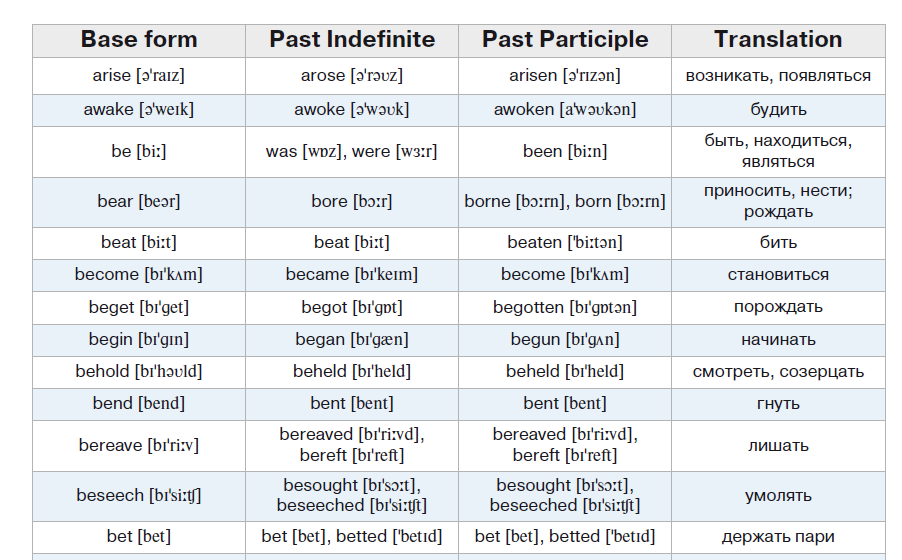 The Malian people
would never forget the support that Russia provided when the neocolonial
countries tried to weaken us, as added Malick Diaw.
The Malian people
would never forget the support that Russia provided when the neocolonial
countries tried to weaken us, as added Malick Diaw.
The Speaker of the National Assembly of the Democratic Republic of São Tomé and Príncipe Celmira de Almeida do Sacramento dos Santos Lourenço drew attention to the historical relations with Russia, which had always supported African countries in their struggle for independence, in the formation of the country’s personnel potential.
“We should note the large investments of the Russian Federation on the African continent in the construction of a railway structure, telecommunications infrastructure, the supply of equipment for the mining industry, and agricultural equipment,” added the parliamentarian.
According to her, there is lack of the right policy for managing the available resources on the continent and that stops the progress.
The President of the National Assembly of the Central African Republic Simplice Mathieu Sarandji
asked the Chairman of the State Duma Vyacheslav Volodin to convey to the President of the Russian Federation Vladimir Putin the words of greeting from
the leader of the Central African Republic Faustin-Archange Touadéra.
He also supported Vyacheslav Volodin that the current paradigm of a unipolar world requires urgent revision. “Why did not we break it earlier? Are African countries unable to use their own natural resources and wealth?” he wondered.
The Chairman of South Africa’s National Council of Provinces Amos Masondo said that “Russia has no colonial heritage in Africa and no African country sees Russia as an enemy. On the contrary, you helped us in our liberation, you are a reliable partner.”
He stressed that his country stood for a multipolar world.
“Political diversity is a guarantee of strength and realization of our potential, a solution to the challenges that we are facing at the regional, continental and international levels,” said Amos Masondo.
The Speaker of the National Assembly of the Parliament of the Republic of South Africa
Nosiviwe Mapisa-Nqakula emphasized that many countries were facing very
aggressive sanctions and other methods of control.
“Of course, such decisions are not made in the interests of ordinary, average citizens. The imposition of such sanctions is definitely one of the flagrant violations of human rights,” she added.
According to her, “during the many decades of colonialism and Africa still continues to be a continent suffering from exploitation and draining of resources and wealth. That is why Africa needs an honest, fair and balanced counterpart.”
On 19–20 March 2023, the State Duma hosts the Second International Parliamentary Conference “Russia – Africa” in Moscow.
More than
40 official parliamentary delegations from almost all African countries take
part in the Conference. Representatives of the scientific, educational and expert communities from Russia and African countries, members of the State
Duma, federal executive authorities, senators of the Federation Council,
chairmen of the legislative bodies of the constituent entities of the Russian
Federation, representatives of the business community also take part in the events of the Conference.
The objectives of the Conference are to strengthen parliamentary cooperation with African countries in the conditions of formation of a multipolar world, to develop relations and develop common approaches to legal regulation in the economy, science and education and security.
On March 19, on the first day of the Conference, there were held the following round tables:
- Parliamentary Support of Scientific and Educational Cooperation
- Legislative Response to Economic Challenges
- Indivisible Security: Capabilities and Contributions of Parliaments
- Neocolonialism of the West: How to Prevent the Repetition of History.
On March 19, there was also held a business breakfast with participation of the parliamentary delegations of African states and Russian business representatives.
On March 20, there will be held a plenary session of the International Parliamentary
Conference entitled “Russia-Africa in the multipolar world”.
As part of the events of the Conference, the Chairman of the State Duma Vyacheslav Volodin held bilateral meetings with several heads of delegations, speakers of parliaments and chambers of parliaments of African countries.
The Conference is planned to be held just few months before the Second Russia-Africa Summit, which is planned to be held on July 2023 in Saint Petersburg.
The First International Conference “Russia – Africa” was held in Moscow in 2019.
90 000 членов ВОЗ проголосовали за перенос офиса в Москву и призвали Россию прекратить нападения на больницы | Глобальное развитиеГосударства-члены Всемирной организации здравоохранения проголосовали в среду за перенос московского офиса ВОЗ в Копенгаген и призвали Россию прекратить нападения на больницы и медицинские учреждения в Украине.
На 76-й сессии Всемирной ассамблеи здравоохранения в Женеве 80 государств-членов проголосовали за то, чтобы обратиться к секретариату ВОЗ с просьбой о переводе Европейского офиса по профилактике неинфекционных заболеваний и борьбе с ними в Данию до нового года.
Помимо России против проекта решения проголосовали восемь государств-членов, в том числе Северная Корея, Китай и Беларусь. Воздержались 52 штата.
Проект решения о перемещении офиса в России был принят 23 мая Европейским региональным комитетом, в состав которого входят 53 государства из Европейского региона ВОЗ, после голосования в начале месяца.
«Далекий от политизации ситуации, [проект решения] фокусируется конкретно на сохраняющихся последствиях войны для здоровья», — сказал делегат Украины, обращаясь к собранию перед голосованием в среду.
«Полномасштабная агрессия России против Украины… вызвала один из крупнейших медицинских и гуманитарных кризисов», — сказала она. «Более 1256 медицинских учреждений были повреждены и 177 превратились в руины, в результате чего около 237 медицинских работников и пациентов погибли или получили ранения».
Делегат Украины сказал: «Более 1256 медицинских учреждений были повреждены и 177 превратились в руины, в результате чего около 237 медицинских работников и пациентов погибли и получили ранения».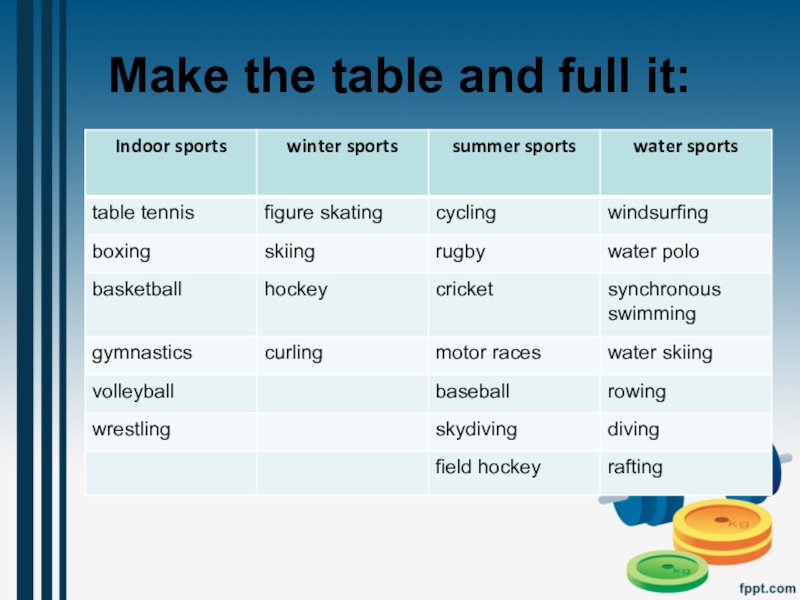 Фото: агентство Anadolu/Getty Images
Фото: агентство Anadolu/Getty ImagesУчастие России в ВОЗ, которая является агентством ООН, вызвало споры с тех пор, как она вторглась в Украину в феврале 2022 года. В апреле Россия стала председательствовать в Совете безопасности ООН на ежемесячной основе. Постоянный представитель Украины при ООН назвал ситуацию «абсурдной».
Петиция об исключении России из ООН, подготовленная Civic Hub, группой украинских и иностранных юристов и дипломатов, собрала более 300 000 подписей в Интернете и получила поддержку украинских депутатов, таких как Алена Шкрум, Дмитрий Наталуха и Леся Василенко .
Сообщается, что в прошлом году Украина добивалась отстранения России от исполнительного комитета ВОЗ, но прекратила попытки из-за юридических трудностей.
Вынос офиса ВОЗ из Москвы можно рассматривать как небольшую, но важную победу Украины и ее союзников.
«Решение подтверждает, что агрессия России против Украины является «исключительным обстоятельством», — сказал Томас Грант, юрист, исследователь из Кембриджского университета и член Civic Hub. По словам Гранта, это оставляет возможность для лишения России права голоса в соответствии со статьей 7 устава ВОЗ.
По словам Гранта, это оставляет возможность для лишения России права голоса в соответствии со статьей 7 устава ВОЗ.
«ВОЗ придерживается универсального подхода к голосованию, — сказал Грант. «Даже предположение о том, что участник может столкнуться с отстранением от должности по статье 7, является большим шагом».
«Размещение у себя офиса ООН — это привилегия, а не право», — сказал датский делегат на ассамблее. «Это связано с обязательствами, начиная с соблюдения устава ООН. Это было нарушено Россией в Украине».
Российские делегаты обвинили Украину и ее сторонников в политизации собрания и заявили, что Украина несет ответственность за конфликт.
Россия представила отдельный проект резолюции, соавторами которого являются Сирия, Никарагуа и Беларусь, о «чрезвычайной ситуации в области здравоохранения в Украине и вокруг нее». Резолюция «решительно осудила» использование гражданских лиц в качестве «живых щитов» и выразила «сильную обеспокоенность» решением закрыть офис ВОЗ в Москве.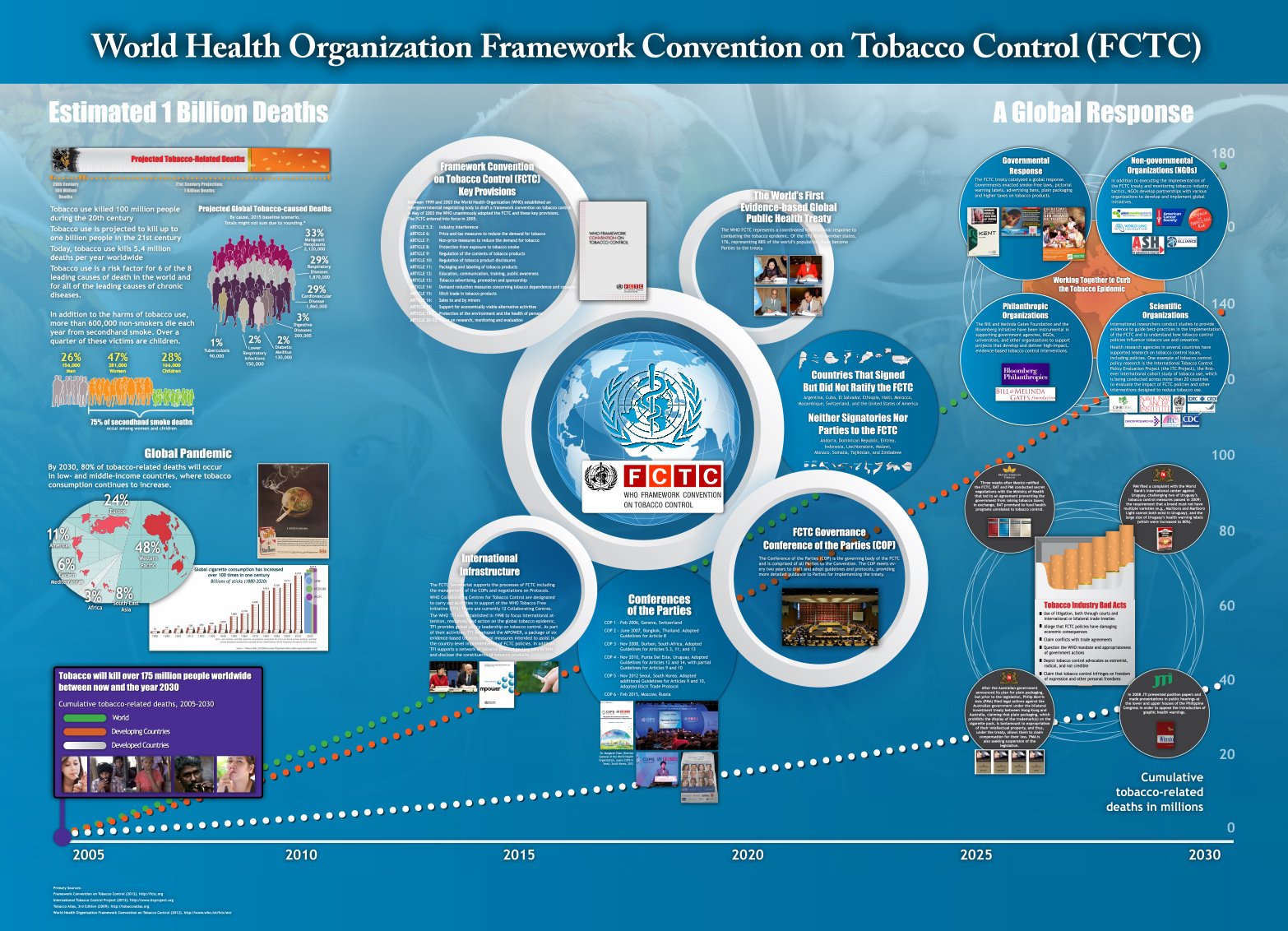 В тексте не возлагалась ответственность ни за одну из атак, описанных в документе.
В тексте не возлагалась ответственность ни за одну из атак, описанных в документе.
Российская резолюция отклонена 62 голосами против 13 при 61 воздержавшемся.
Представитель Украины назвал предложенную Россией резолюцию «отчаянной попыткой поставить агрессора в один ряд с жертвой и уйти от ответственности за атаки на системы здравоохранения в Украине».
Ранее в мае Дания объявила, что 12 стран вместе будут платить 5,6 миллиона долларов (4,5 миллиона фунтов стерлингов) в год, которые Россия выделила на содержание офиса.
Максим Барышников, один из авторов петиции Civic Hub, приветствовал решение о переносе московского офиса ВОЗ как шаг в правильном направлении. «Любая международная организация, частью которой является Россия, становится инструментом в ее руках», — сказал он. — Нам нужно отрезать эту руку.
Медицинское образование в РоссииВ прошлом году Москву посетила делегация Всемирной организации здравоохранения.
интересует медицинское образование в России. Некоторые из них приехали в Московскую медицинскую академию и побеседовали на эту тему с доктором Ивановым, деканом лечебного факультета. Конрой: Доктор Иванов, мы с коллегами находимся здесь по договоренности со Всемирной организацией здравоохранения. Мы хотели бы получить некоторую информацию о подготовке врачей в вашей стране и об учебных программах в медицинских высших учебных заведениях, или медицинских школах, как мы их называем. Декан: Я буду рад ответить на все ваши вопросы. Конрой: Прежде всего, не могли бы вы сообщить нам, кто имеет право поступать в медицинский вуз в вашей стране? Дин: Любой гражданин нашей страны, имеющий полное среднее образование, может поступить в медицинский вуз. Конрой: Кандидаты должны сдавать экзамены, не так ли? Дин: Да, именно так. Все абитуриенты должны сдать вступительные конкурсные экзамены по биологии, химии и русскому языку. И допускаются те, кто получил самые высокие оценки на экзаменах. Абитуриенты, окончившие школу с золотой или серебряной медалью, допускаются только к одному экзамену.
Некоторые из них приехали в Московскую медицинскую академию и побеседовали на эту тему с доктором Ивановым, деканом лечебного факультета. Конрой: Доктор Иванов, мы с коллегами находимся здесь по договоренности со Всемирной организацией здравоохранения. Мы хотели бы получить некоторую информацию о подготовке врачей в вашей стране и об учебных программах в медицинских высших учебных заведениях, или медицинских школах, как мы их называем. Декан: Я буду рад ответить на все ваши вопросы. Конрой: Прежде всего, не могли бы вы сообщить нам, кто имеет право поступать в медицинский вуз в вашей стране? Дин: Любой гражданин нашей страны, имеющий полное среднее образование, может поступить в медицинский вуз. Конрой: Кандидаты должны сдавать экзамены, не так ли? Дин: Да, именно так. Все абитуриенты должны сдать вступительные конкурсные экзамены по биологии, химии и русскому языку. И допускаются те, кто получил самые высокие оценки на экзаменах. Абитуриенты, окончившие школу с золотой или серебряной медалью, допускаются только к одному экзамену. Если они получают отличную оценку, их принимают в медицинскую школу. Браун: Не могли бы вы рассказать нам, как обучаются ваши студенты? Дин: Обучение в высших школах осуществляется посредством лекций, групповых занятий и практических занятий. Скотт: Является ли посещение лекций и занятий добровольным? Дин: Нет, это обязательно для всех студентов. Конрой: Как проверяются знания студентов? Дин: Наш учебный год начинается 1 сентября и делится на два семестра по четыре месяца каждый. В конце каждого семестра студенты должны сдать ряд экзаменов. Браун: Мы хотели бы узнать кое-что о вашей медицинской программе, если можно. Дин: Ну, курс обучения длится 6 лет и охватывает основные доклинические и клинические предметы. В доклинических годах учебная программа едина для студентов лечебного, профилактического, стоматологического и педиатрического факультетов. В течение первых двух лет студенты изучают физику, общую, органическую, неорганическую и биологическую химию. Студенты также изучают анатомию человека, физиологию, гистологию, микробиологию, латынь, иностранный язык и философию.
Если они получают отличную оценку, их принимают в медицинскую школу. Браун: Не могли бы вы рассказать нам, как обучаются ваши студенты? Дин: Обучение в высших школах осуществляется посредством лекций, групповых занятий и практических занятий. Скотт: Является ли посещение лекций и занятий добровольным? Дин: Нет, это обязательно для всех студентов. Конрой: Как проверяются знания студентов? Дин: Наш учебный год начинается 1 сентября и делится на два семестра по четыре месяца каждый. В конце каждого семестра студенты должны сдать ряд экзаменов. Браун: Мы хотели бы узнать кое-что о вашей медицинской программе, если можно. Дин: Ну, курс обучения длится 6 лет и охватывает основные доклинические и клинические предметы. В доклинических годах учебная программа едина для студентов лечебного, профилактического, стоматологического и педиатрического факультетов. В течение первых двух лет студенты изучают физику, общую, органическую, неорганическую и биологическую химию. Студенты также изучают анатомию человека, физиологию, гистологию, микробиологию, латынь, иностранный язык и философию.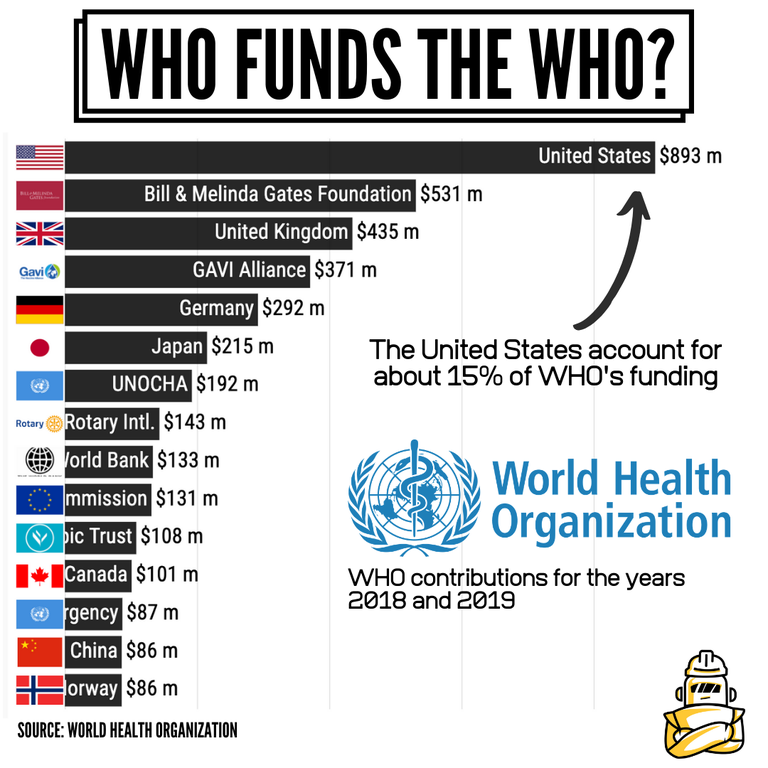 С третьего курса вводятся специальные клинические предметы — все разделы внутренней медицины, хирургии, гинекологии, акушерства, офтальмологии, инфекционных болезней и др. В конце третьего курса студенты проходят шестинедельный практический курс. Они выполняют обязанности медсестер. После четвертого курса студенты проходят еще один практический курс, в ходе которого они знакомятся с непосредственным общением врача и пациента на кафедре внутренних болезней, а также на хирургическом отделении и кафедре акушерства и гинекологии. Работая фельдшерами, студенты осваивают определенный набор лечебно-диагностических процедур. Студенты старших курсов также проходят практику в поликлиниках. Они также должны посещать лекции, семинары и клинические конференции. Конрой: Доктор Иванов, вы рассказали нам о клинической подготовке студентов на медицинском факультете. Чем заканчивается курс обучения в медицинском вузе? А как насчет специализации? Декан: Видите ли, у нас выпускники-медики сдают итоговый государственный экзамен, который включает в себя теоретические вопросы по внутренним болезням, хирургии и акушерству и гинекологии, а также по клиническим случаям.
С третьего курса вводятся специальные клинические предметы — все разделы внутренней медицины, хирургии, гинекологии, акушерства, офтальмологии, инфекционных болезней и др. В конце третьего курса студенты проходят шестинедельный практический курс. Они выполняют обязанности медсестер. После четвертого курса студенты проходят еще один практический курс, в ходе которого они знакомятся с непосредственным общением врача и пациента на кафедре внутренних болезней, а также на хирургическом отделении и кафедре акушерства и гинекологии. Работая фельдшерами, студенты осваивают определенный набор лечебно-диагностических процедур. Студенты старших курсов также проходят практику в поликлиниках. Они также должны посещать лекции, семинары и клинические конференции. Конрой: Доктор Иванов, вы рассказали нам о клинической подготовке студентов на медицинском факультете. Чем заканчивается курс обучения в медицинском вузе? А как насчет специализации? Декан: Видите ли, у нас выпускники-медики сдают итоговый государственный экзамен, который включает в себя теоретические вопросы по внутренним болезням, хирургии и акушерству и гинекологии, а также по клиническим случаям. Выпускники также должны продемонстрировать свои практические навыки. Сдавшие экзамен получают диплом, удостоверяющий их как врачей. Получив диплом, они могут либо пройти годичный курс интернатуры, дающий им квалификацию специалистов общей медицины, либо двухгодичный курс резидентуры, дающий им квалификацию узкоспециализированных специалистов. Браун: Доктор Иванов, не могли бы вы рассказать нам, какие возможности есть у ваших врачей для специализации? Дин: Интерны и ординаторы работают под непосредственным руководством опытных специалистов в клиниках и крупных больницах. Выпускники медицинских вузов также могут подать заявку на обучение в аспирантуре. В течение трех лет аспиранты занимаются исследованием одной из актуальных проблем современной медицины, готовят диссертацию, защищают ее и получают ученую степень кандидата медицинских наук. Конрой: Доктор Иванов, большое спасибо за беседу. Дин: Добро пожаловать. Если хотите, я с удовольствием покажу вам некоторые из наших клинических больниц и отделений.
Выпускники также должны продемонстрировать свои практические навыки. Сдавшие экзамен получают диплом, удостоверяющий их как врачей. Получив диплом, они могут либо пройти годичный курс интернатуры, дающий им квалификацию специалистов общей медицины, либо двухгодичный курс резидентуры, дающий им квалификацию узкоспециализированных специалистов. Браун: Доктор Иванов, не могли бы вы рассказать нам, какие возможности есть у ваших врачей для специализации? Дин: Интерны и ординаторы работают под непосредственным руководством опытных специалистов в клиниках и крупных больницах. Выпускники медицинских вузов также могут подать заявку на обучение в аспирантуре. В течение трех лет аспиранты занимаются исследованием одной из актуальных проблем современной медицины, готовят диссертацию, защищают ее и получают ученую степень кандидата медицинских наук. Конрой: Доктор Иванов, большое спасибо за беседу. Дин: Добро пожаловать. Если хотите, я с удовольствием покажу вам некоторые из наших клинических больниц и отделений.


Leave A Comment